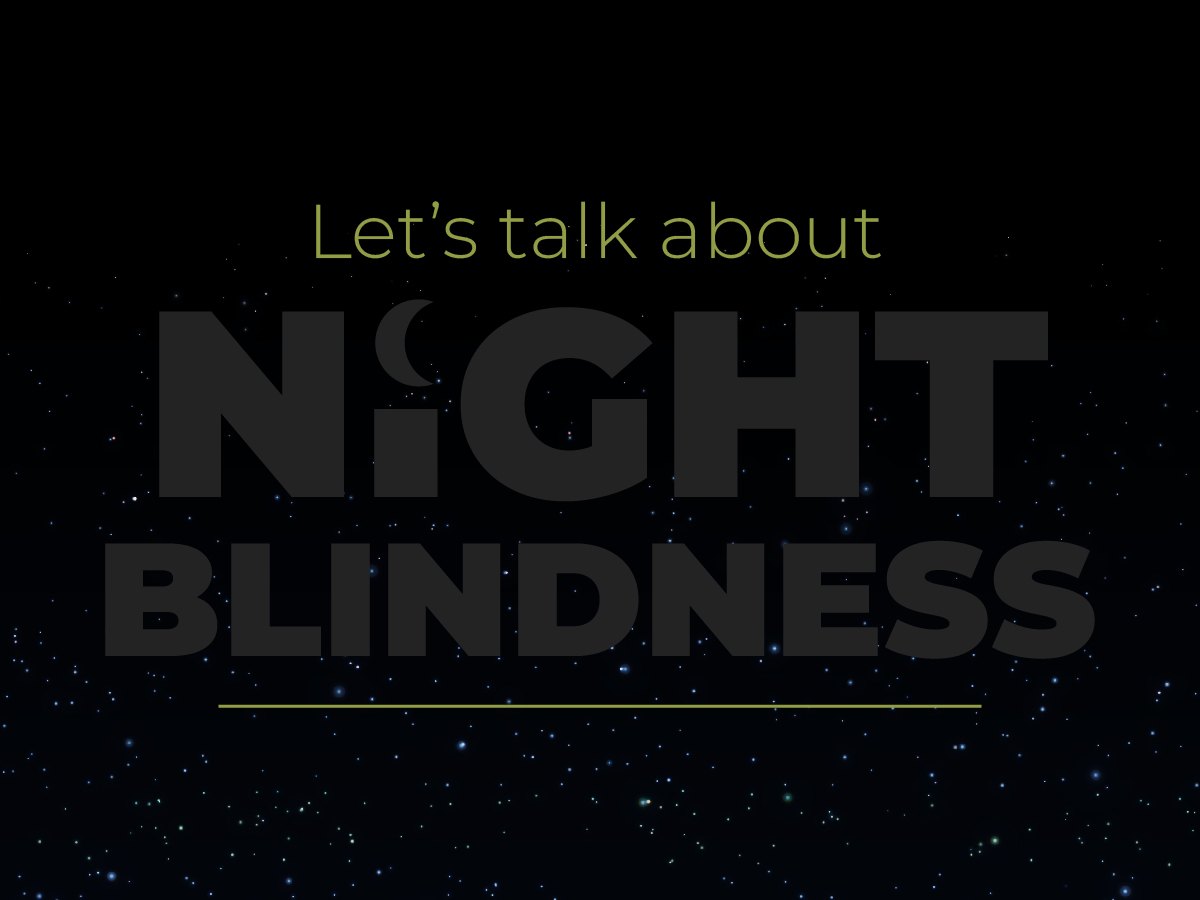Night blindness, also known as nyctalopia, is a vision disorder that makes it difficult to see in low-light conditions or at night. People with night blindness often find it challenging to navigate in the dark, leading to various difficulties, especially in adverse weather conditions like rain.
At Artisan Optics in Boise, we’ll diagnose the root cause of your night blindness, offering effective solutions to improve your quality of life.
Causes of Night Blindness: Unveiling the Culprits
Various factors can cause night blindness, such as:
- Vitamin A Deficiency: It is vital in maintaining healthy vision, particularly in low-light conditions. Deficiency in this essential nutrient can lead to night blindness.
- Cataracts: Caused by the clouding of the eye's lens, cataracts can also result in night blindness, hindering the amount of light that reaches the retina.
- Retinitis Pigmentosa: This genetic disorder affects the cells in the retina, leading to night blindness and a gradual loss of peripheral vision.
Managing Night Blindness: Practical Tips and Lifestyle Changes
While night blindness can be challenging, there are practical strategies to manage the condition and improve night vision.
-
- Address Underlying Health Issues: Regular eye exams can help identify the root cause of night blindness, allowing for appropriate treatment.
- Incorporate a Diet Rich in Vitamin A and Other Nutrients: Foods like carrots, sweet potatoes, spinach, and fish are excellent sources of these nutrients.
- Use Visual Aids: Night vision glasses or goggles designed to enhance visibility in low-light conditions can significantly improve night vision, providing better contrast and reducing glare.
- Orientation and Mobility Training: These programs can be invaluable for people with genetic conditions like retinitis pigmentosa, teaching techniques to navigate various lighting situations.
Night Driving and Adverse Weather: A Double Challenge
Driving at night is already a daunting task for individuals with night blindness. Add rain into the mix, and the challenge intensifies because rainy weather reduces visibility significantly, causing glare from headlights and streetlights to scatter, making it even more difficult for those with night blindness to see clearly. Raindrops on the windshield can also create distorted images and further obstruct vision, making night driving in the rain exceptionally hazardous.
Coping with Night Blindness while Driving in Rain: Safety Measures
If you have night blindness and need to drive in the rain, it's crucial to prioritize safety above all else. Consider these safety measures to cope with night blindness while driving in adverse weather conditions:
- Maintain a Safe Following Distance: Increase the distance between your vehicle and the one in front. This distance provides ample time to react to sudden stops or obstacles on the road, compensating for reduced reaction time due to limited visibility.
- Use Proper Lighting: Make sure your headlights, taillights, and brake lights are functioning correctly. Clean your windshield and headlights regularly to minimize glare from raindrops and oncoming vehicles.
- Avoid High-Intensity Lights: Dim your dashboard lights and avoid looking directly into the headlights of oncoming vehicles. High-intensity lights can exacerbate glare and hinder your night vision further.
- Stay Informed: Check weather forecasts before your journey. Consider postponing travel during heavy rains or opt for public transportation or rideshare services when your night vision is severely compromised.
- Consider Driving Aids: Investigate adaptive driving aids for individuals with low vision. These aids can include auditory cues, specialized mirrors, or navigation systems tailored to enhance safety and confidence while driving.
Book an Appointment for Night Blindness in Boise
Don't wait until your night blindness becomes a significant concern. Book an appointment with Artisan Optics in Boise for a comprehensive eye exam and appropriate solutions and aids to improve your night vision.

